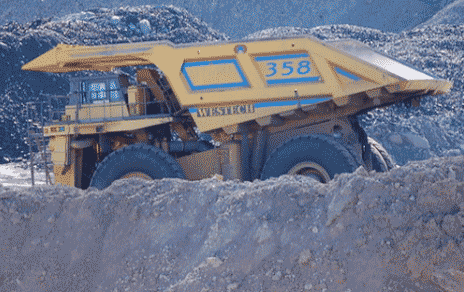Guinea will fast-track the development of alumina refineries and iron ore pellet plants to end decades of raw ore exports, its mines minister told reporters, as the country prepares for the first shipments from its huge Simandou iron ore mine this week.
In-country alumina and iron ore processing could transform Guinea’s economy by creating industrial jobs and reducing exposure to commodity price swings, the World Bank said in July.
Guinea ships about 60% of its bauxite, a feedstock for aluminum, to China, while a third of iron ore produced by the Simandou mine is destined for Chinese mills.
Conakry has signed its first alumina refinery deal with Chinese state-owned SPIC, with construction underway and completion due by end-2027, said Mines Minister Bouna Sylla.
Talks for additional plants are advanced with Chinalco and France’s Alteo, and ongoing with Compagnie des Bauxites de Guinee and Alcoa, he added.
“We are the biggest bauxite producer in the world now … but we don’t have any refineries built since colonial times,” Sylla said. “That will change.”
Six refineries by 2030
Guinea joins a raft of mineral-rich African countries from gold producer Mali to oil driller Nigeria that have pushed to boost domestic refining capacity in recent years, a step key to maximizing returns, boosting economic growth and reducing costly imports.
The country aims to install five to six alumina refineries by 2030, boosting domestic processing capacity to about 7 million metric tons annually, Sylla said.
The West African nation in August revoked a bauxite concession awarded to a unit of Emirates Global Aluminium after the firm failed to build a promised alumina refinery locally, according to the minister.
EGA did not immediately respond to a request for comment.
China’s alumina projects in Guinea won’t cut its dependence on the country as exports will simply shift to alumina from bauxite, Allison Ju of SMM said.
Guinea’s bauxite, low in silica and suited for low-temperature refining, underpins 25% of global aluminum output.
Iron ore processing
Beyond alumina, Sylla said Guinea is pushing for domestic processing of iron ore.
Current agreements require Rio Tinto and Winning Consortium Simandou, who are jointly developing the Simandou deposit, to study and build a 500,000-ton steel plant or a 2 million-ton pellet facility, Sylla said.
The partners must submit feasibility studies for a steel mill or pellet plant within two years of first exports, said Djiba Diakite, chief of staff to the president.
If they fail, Guinea can hire a top global firm at the expense of Compagnie du Transguineen — the joint venture managing Simandou’s rail and port services — for the study.
“We believe we have identified the minimum capacities to design (this facility) based on sound economic principles,” Sylla said.
Rio Tinto’s Simfer venture, which operates part of the Simandou project, has a commitment for a feasibility study on a pellet plant to help understand the viability and options available, a Rio Tinto spokesperson told Reuters on Monday.
WCS did not immediately respond to a request for comment.
Guinea’s proximity to Europe and the US gives it a logistics edge over Middle Eastern hubs, Sylla said, adding that producing pellets and direct reduced iron for green steel are the preferred path.
Energy remains the biggest hurdle, Sylla admitted, but said Guinea is courting hydro, solar and liquefied natural gas investments, including a US-backed plan to import LNG for power plants.
(By Maxwell Akalaare Adombila; Editing by Clara Denina and Jan Harvey)
